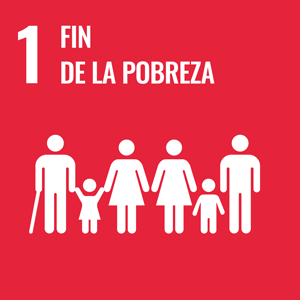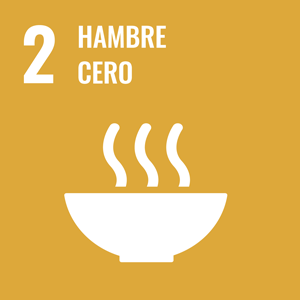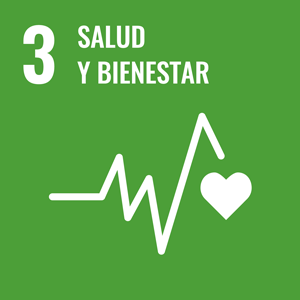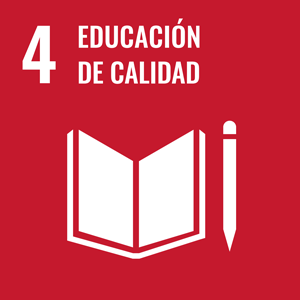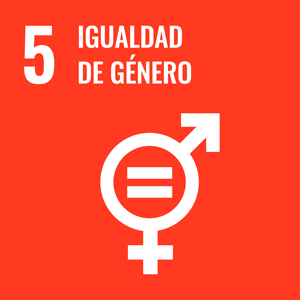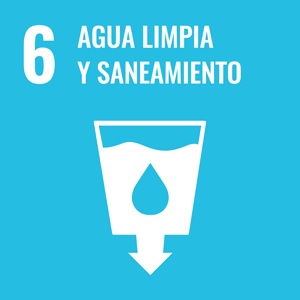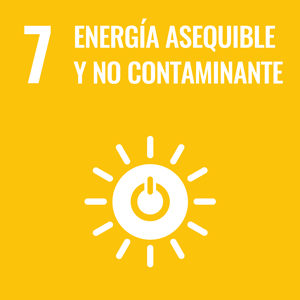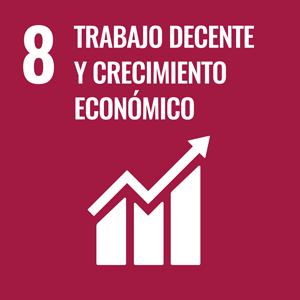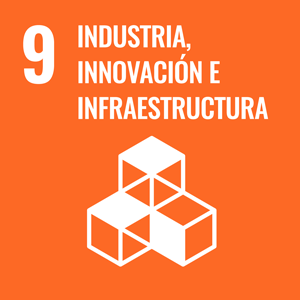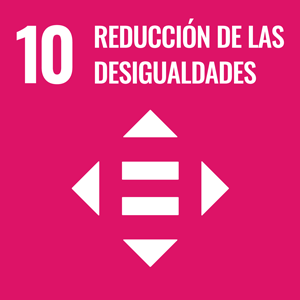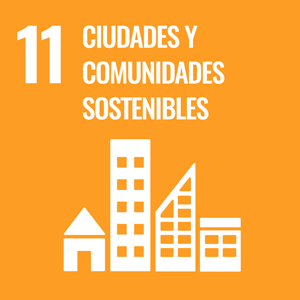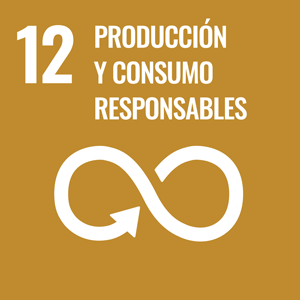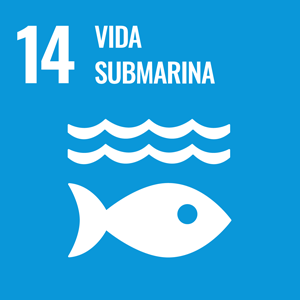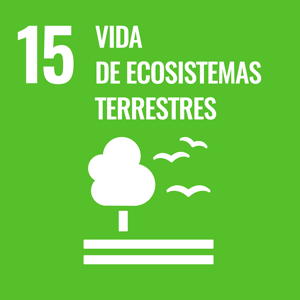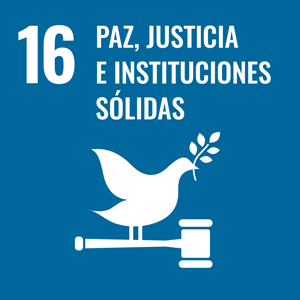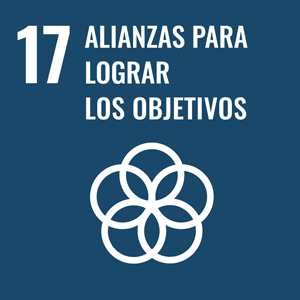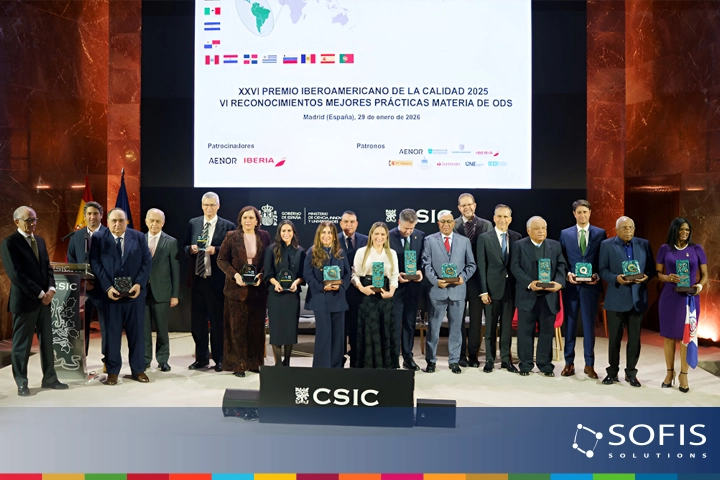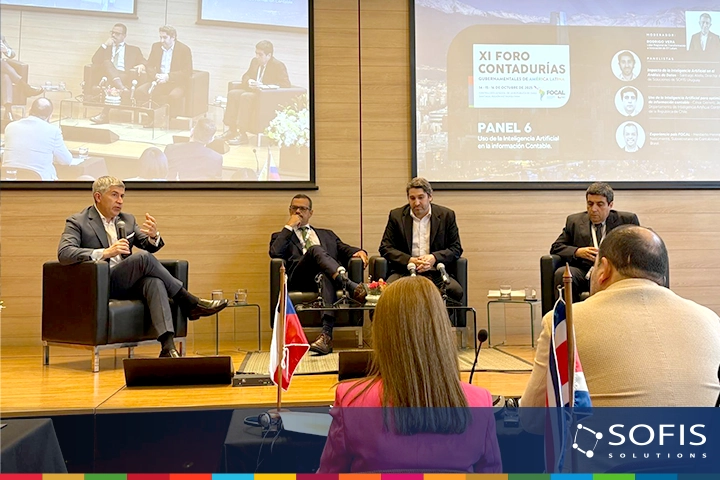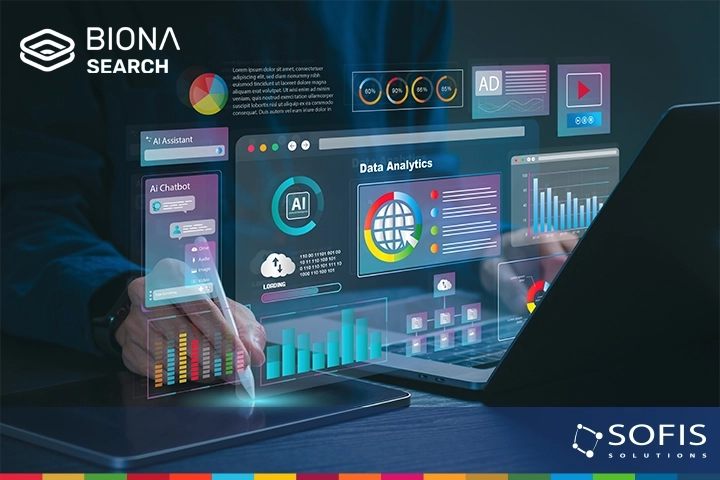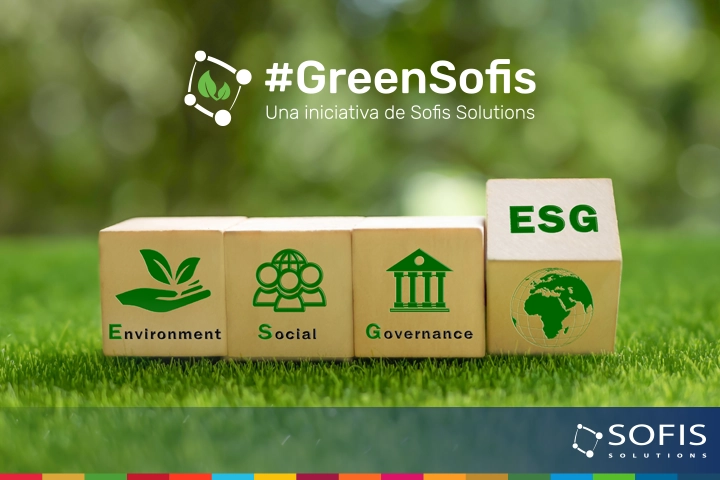-
Who we are
-
-
StrategyMission
To solve the challenges of organizations and communities through intelligent, secure, sustainable, and people-centered solutions, so they generate real value in their social and productive contexts.
VisionTo be the chosen company by organizations seeking to innovate with quality, purpose, and trust in the intelligent era.
Learn moreValues- Ethics and transparency
- Professionalism
- Respect
- Honesty
- Innovation
- Responsibility
- Effectiveness
- Integrity
- Customer orientation
- Punctuality
-
-
-
History
Sofis Solutions was born in 2005, in the city of Montevideo - Uruguay.
Since its inception, the main driver was and remains quality. This applies to processes, products, and relationships with the environment.The internationalization of the company It was one of the founding objectives. In the first stage, it expanded from Uruguay, and in the second stage, it opened offices in Latin American countries. Currently, it has offices in Montevideo, Panama, El Salvador and Ecuador.
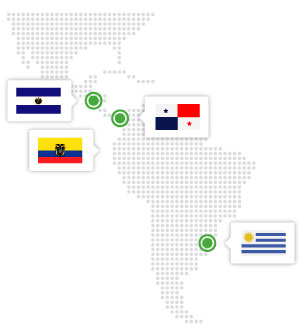
-
-
-
Alliances

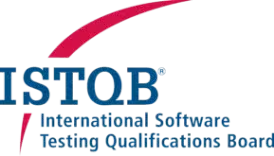

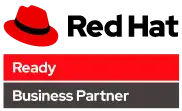

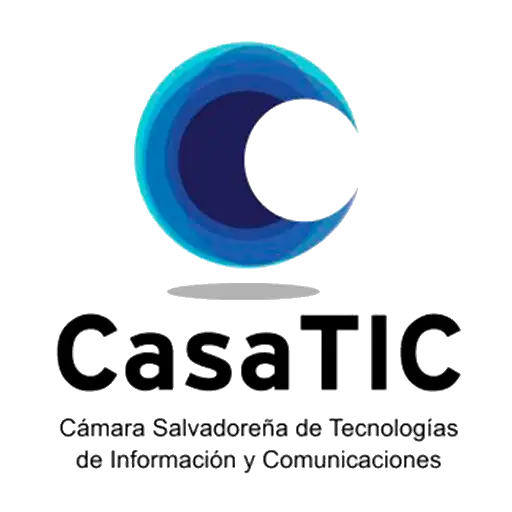


-
-
-
Certifications

CMMI-DEV-3
More informationNational Quality Award - 2023 Edition
More informationISO 9001:2015
Quality Management SystemISO 37001:2016
Anti-Bribery Management SystemISO 14001:2015
Environmental Management System
-
-
-
SustainabilityLearn more
Sofis Solutions integrates environmental, social, and governance (ESG) principles into its management and operations, driving sustainability through Digital Transformation. Its strategic approach prioritizes energy efficiency, digital inclusion, and transparency in digital governance, contributing to the responsible development of organizations.
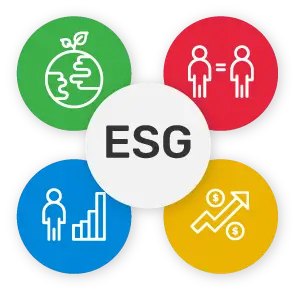
-
-
-
What we do
-
-
IT projectsLearn moreAt our Software Factory, we specialize in providing software development solutions with a focus on excellence and sustainability.
-
-
-
Software qualityOur software quality services comprehensively address the aspects or dimensions of software quality, addressing this approach throughout the entire software development cycle.
- Manual and automated functional suitability testing
- Performance testing
- Software product quality
- Software quality consulting
Learn more
-
-
-
Staff AugmentationLearn moreWhat is IT Staff Augmentation? IT Staff Augmentation is a specialized technical staffing model that enables organizations to increase their agility and respond to the changing technological needs of the market.
-
-
-
ConsultancyIn the public sector, strategic decisions and projects with citizen-centered designs and excellence have the power to transform entire communities.Learn more
-
-
-
BIonA SuiteBIonA Suite is a comprehensive platform for the intelligent management of processes and services in public and private organizations. BIonA Suite facilitates smart transformation with a focus on public value and user experience. Learn more
-
-
-
Projects
-
-
Recent projects
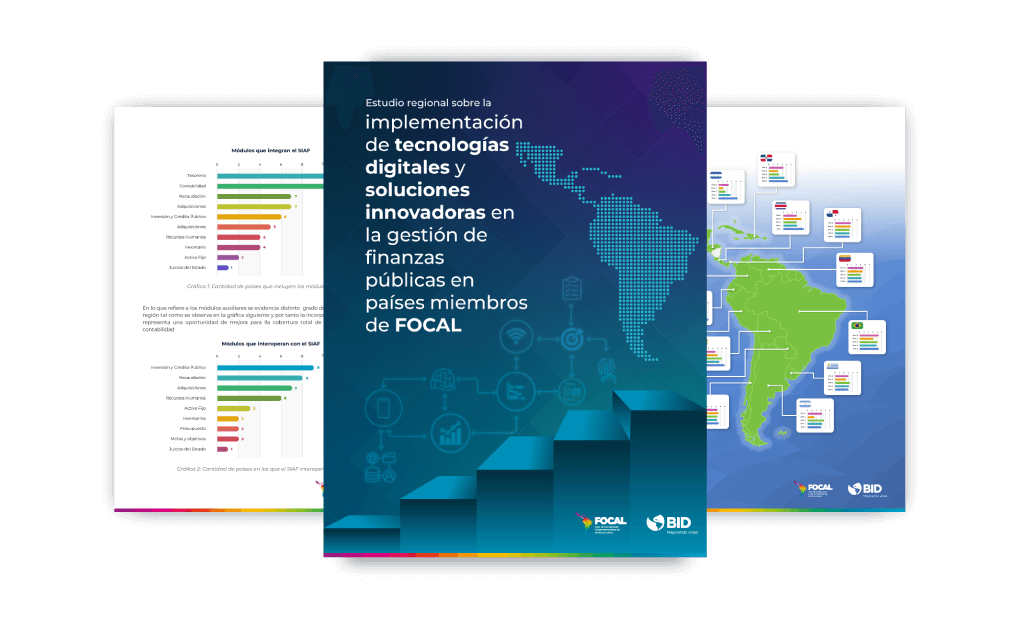 FOCAL Regional StudyFOCAL - El Salvador
FOCAL Regional StudyFOCAL - El Salvador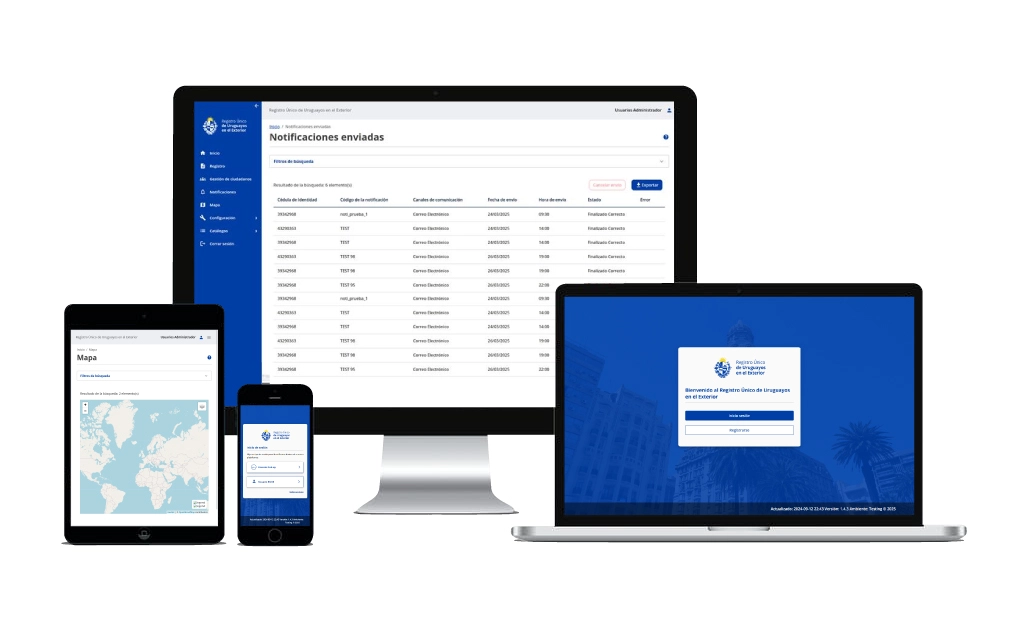 Single Registry of Uruguayans AbroadMinistry of Foreign Affairs - Uruguay
Single Registry of Uruguayans AbroadMinistry of Foreign Affairs - Uruguay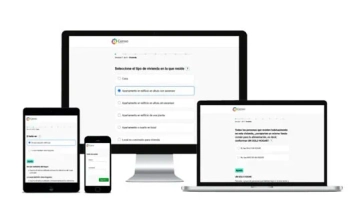 Population and Housing Census 2023National Institute of Statistics - Uruguay
Population and Housing Census 2023National Institute of Statistics - Uruguay
-
-
-
Digital Public InfrastructureWhat are Digital Public Platforms?ProjectsProducts
-
-
-
-
Mobile applicationsWe create hybrid, native, and PWA solutions for devices with Android and iOS operating systems.
Some of our projects:Digital Patrols, Ecuadorian Bovine Information System, Easy Budget UY, Digital Portfolio, SIGES Teachers App, SIGES Parents App.
Learn more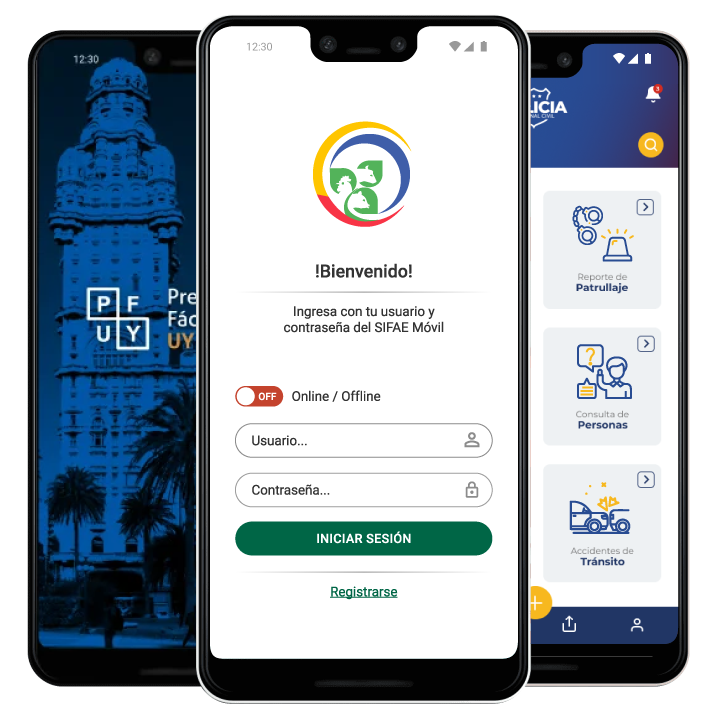
-
-
-
FOCAL regional studyThe purpose of the study was to carry out a regional analysis with the objective of identifying and evaluating the maturity level of the member countries of the Latin American Government Accounting Forum (FOCAL), currently composed of Argentina, Bolivia, Brazil, Chile, Colombia, Costa Rica, Ecuador, El Salvador, Guatemala, Honduras, Mexico, Nicaragua, Panama, Paraguay, Peru, Dominican Republic, Uruguay and Venezuela.Learn more
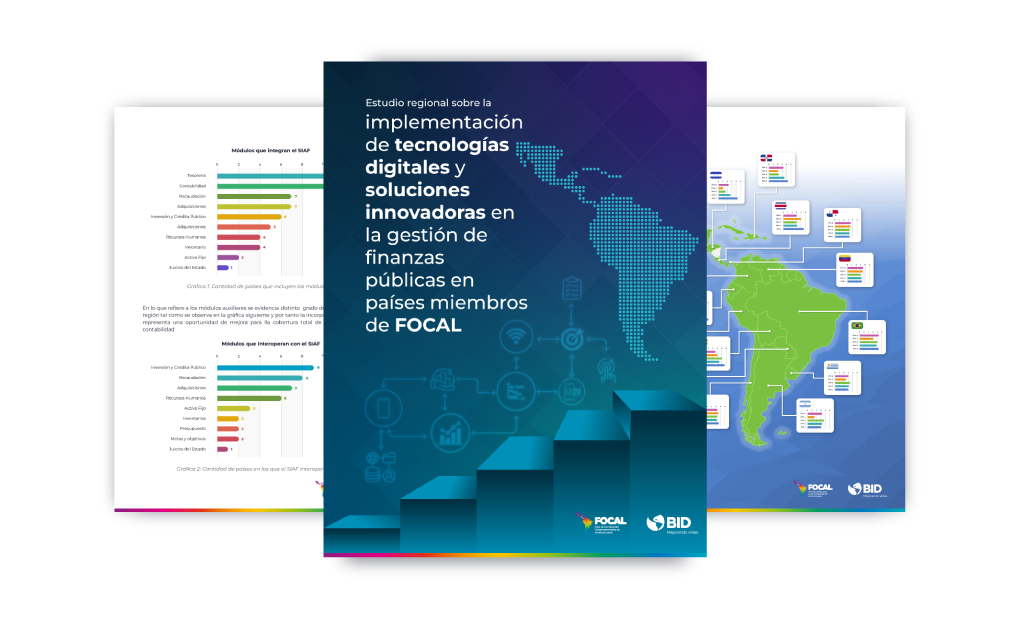
-
-
- AI
-
-
Artificial IntelligenceLearn moreAdvanced Artificial Intelligence (AI) and Big Data solutions that transform the way organizations make decisions and optimize their operations. We specialize in the development of intelligent autonomous agents and generative AI solutions using large language models (LLMs), both on local infrastructure and in the cloud.
-
- Press Room
-
-
Sustainable development
-
-
-
Interviews
 16/06/2025Virtual Threads in Java
16/06/2025Virtual Threads in Java
-
- Innovation
-
-
#GreenSofisMore information
Methodology
#GreenSofisSustainable Digital Transformation Conference
#GreenPath
-
-
-
AI For Everything
It is an initiative by Sofis Solutions, from the Intelligent Solutions Division, that promotes the adoption of artificial intelligence as a key driver of efficiency and effectiveness in the intelligent era.
It integrates both administrative and operational processes, promoting an organizational evolution where technology amplifies knowledge, optimizes decision-making, and generates value in a sustainable and inclusive way.
More information
-
- Contact us
- ES PT-PT
-
Anti-Bribery Policy
1 - Introduction
The United Nations General Assembly, in its Resolution 58/4 of October 31, 2003, approved the United Nations Convention against Corruption, which serves as the foundation for developing and implementing anti-corruption policies, both in the public sector and in private enterprises.
Bribery is a form of corruption that poses a threat, obstructing market development and distorting fair competition that must exist among different operators. Governments cannot fight this threat alone; they require the full cooperation of businesses and private entities as indispensable allies.
It is essential that companies and private entities establish detailed policies for specific risk areas since the boundary between legal and corrupt practices can often be blurred, creating many grey areas that must be regulated to draw clear limits between legitimate and illegitimate practices.
2 - Objective
Sofis Solutions is committed to the values and objectives of the United Nations Convention against Corruption and approves this Anti-Bribery Policy (The terminology “Anti-Bribery Policy” used in this document is intended in the broad sense and not strictly in terms of the legal characterization that may differ across jurisdictions) as an initiative to combat possible fraudulent behaviours and conduct contrary to the current anti-bribery laws and regulations (3) in the countries where business relationships are established.
Thus, the company commits to maintaining a zero-tolerance position (4.2) toward bribery in all its forms, as a way of protecting its reputation.
As a demonstration of its commitment, Sofis has joined the United Nations Global Compact international initiative. This commitment invites companies to adopt, support, and implement within their sphere of influence the 10 principles — a set of fundamental values in the areas of human rights, labour standards, the environment, and anti-corruption. Sofis prepares and publishes the corresponding Communication on Progress (COP) reports, aimed at informing the company’s stakeholders about the progress made in implementing the Global Compact principles.
This Anti-Bribery Policy forms part of the Anti-Bribery Management System established by Sofis Solutions and must be thoroughly considered to ensure compliance with the anti-bribery objectives set by the organization.
3 - Regulatory References
- PU UNIT-ISO 37001:2016 – Anti-Bribery Management Systems – Requirements with guidance for use. Edition 2017-05.
- United Nations Convention against Corruption (2005).
- Convention on Combating Bribery of Foreign Public Officials in International Business Transactions (1999).
- United Nations Global Compact Principles.
- Regulations and laws identified in the context analysis carried out by Sofis Solutions, covering the various countries where business relationships are established.
4 - Definitions
4.1 Bribery
PU UNIT-ISO 37001:2016 on Anti-Bribery Management Systems defines bribery as “the offering, promising, giving, accepting, or soliciting of an undue advantage of any value (which may be financial or non-financial), directly or indirectly, and regardless of location, in violation of applicable law, as an inducement or reward for a person to act or refrain from acting in relation to the performance of that person’s duties.”
In other words, bribery can be understood as giving or receiving something of value (usually money, a gift, loan, reward, favour, commission, or entertainment) as an improper inducement or reward to obtain business or any other benefit. Bribery may occur in the public sector (e.g., bribing a public official) or the private sector (e.g., bribing a client’s employee or a business partner). Bribery may also occur when an improper payment is made by or through a third party.
4.2 Zero Tolerance
Sofis Solutions has zero tolerance for any kind of bribery, meaning that any suspected bribery incident will be investigated, and any misconduct may result in disciplinary measures for organization personnel, including dismissal in severe cases, criminal complaints, contract termination, or other sanctions in the case of professional services, partners, suppliers, or even clients.
5 - Scope and Audience
This Policy must be known and applied by all members of Sofis Solutions, including its partners/shareholders, management members, and all staff (under any type of employment relationship), who must ensure they do not engage in any form of bribery and commit to understanding, accepting, and applying the Policy described in this document.
The Anti-Bribery Policy is communicated to the organization’s clients, suppliers (including professional services), and business partners to ensure it is acknowledged and respected within the framework of activities involving business relations with Sofis Solutions.
6 - Our Policy
6.1 General Considerations
Each year, Sofis Solutions sets objectives for its Anti-Bribery Management System and plans actions to achieve them, involving all required parties and ensuring compliance with applicable legal and regulatory requirements or others deemed mandatory. Compliance with this Policy is part of those requirements.
To prevent, detect, and address bribery in the aforementioned forms, Sofis regulates a series of benefits and attentions that could be classified as bribery if not controlled and/or limited. These are detailed in the following sections.
6.2 Facilitation Payments
Facilitation payments are understood as small, unofficial, and improper payments made to an official to obtain or expedite a routine or necessary procedure for an activity.
Such payments may be made to obtain licenses, permits, certificates, and other types of public services, but also to commercial service providers (such as electricity or gas suppliers).
A public official or officer is defined as “any person holding a legislative, administrative, or judicial position, whether by appointment, election, or succession, or any person exercising a public function, including for a public agency or public enterprise, or any official or agent of a local or international public organization, or any candidate for public office.”
These facilitation payments are bribes; they are prohibited by the United Nations Convention against Corruption and, therefore, prohibited by this Policy.
Exception to the prohibition: In the hypothetical case where the demand for a facilitation payment is accompanied by a threat to the safety or well-being of the employee or their family and close associates — that is, in an extortion situation — such payment may be permitted to prevent serious harm, provided that the threat and fear of imminent danger can be demonstrated.
What to do when facing a payment demand?
If Sofis personnel face a payment demand, they must act as follows, depending on whether it is a facilitation payment or an extortion attempt:
- Facilitation payment: If a payment demand is received, proof of legitimacy and an official receipt must be requested. If denied, the payment must not be made.
- Extortion payment: If the payment demand includes a threat, the affected person should inform the organization to receive support, protection, and backing if payment must be made to prevent risk to health, safety, or freedom.
This payment must be recorded in the organization’s accounts, and a brief investigative report must be attached. If required by law, the relevant authorities must also be informed.
6.3 Gifts, Hospitality, Donations, and Similar Benefits
Gifts and business invitations, as well as donations or benefits of a reasonable scale, are used to strengthen business relationships or to benefit the community.
These practices may be appropriate under certain circumstances, socially acceptable in some cultures, or even evidence of Corporate Social Responsibility (CSR) activities. It may also be appropriate to accept or offer courtesies such as travel to business events. However, if gifts, invitations, or trips are frequent or of significant value, they may create the impression or reality of a conflict of interest or an illicit payment — that is, a bribe.
Therefore, this Policy establishes control mechanisms to prevent these benefits from being perceived as bribery whenever possible.
6.3.1 Gifts, Entertainment, and Hospitality
Gifts, advantages, or benefits such as complimentary delivery of products, tickets, or invitations to cultural, leisure, or sports activities are, in principle, legitimate. Although common practice, Sofis regulates them in this Policy to prevent misuse or the appearance of bribery.
Gifts and hospitality must comply with a set of regulatory requirements:
(a) Control of the degree and frequency of gifts and hospitality.
In the private or public context, gifts and courtesies are permitted under the following circumstances:
- Modest-value gifts may be given or received, such as mugs, pens, or T-shirts, or symbolic items such as trophies or plaques of recognition.
- Cash or cash equivalents (vouchers or gift cards) may never be offered or accepted.
- Only gifts or courtesies that comply with applicable law and are not prohibited by contract may be offered or accepted, provided the value does not exceed USD 20 per person.
- No gifts or invitations to or from the same person may occur more than three times per year.
- The total value of gifts received or given by an employee from the same person or company must not exceed USD 100 within two years.
- The gift policy of organizations with which Sofis has business relations must always be respected.
- Gifts in the form of services or benefits (e.g., job offers) are not permitted.
- No gifts should be given or received during or immediately after contract negotiations.
- No gifts should be given to individuals directly involved in contract awards, certificate approvals, or similar processes.
- Gifts should not cause problems if made public.
(b) When gifts or hospitality exceed the established value or frequency, prior management approval is required, and such instances must be documented or recorded in Sofis’s management system. These records will be accessible to the entire organization.
6.3.2 Invitations and Other Promotional Expenses
Business invitations may play an important role in strengthening business relationships and implementing effective commercial policies. Such expenses are permitted, provided that:
- They are related to a legitimate business purpose.
- They are not made in a way that could be perceived or interpreted as a bribe.
- They are infrequent — no more than once every two years.
- They are conducted in a setting appropriate for business.
- They are appropriate in the context of a business relationship.
However, the following are prohibited:
- Excessive invitations relative to the business occasion.
- Invitations involving obscene or inappropriate behaviour.
- Invitations expressly prohibited by law, the client, or supplier.
- Invitations explicitly prohibited under contract.
6.3.3 Travel
Regarding travel whose total or partial costs are borne by Sofis, the following are permitted:
- Officials may be invited to Montevideo, Sofis headquarters, when required for project development.
- Officials may be invited to attend Sofis-organized events or presentations in Montevideo.
- Costs, whether total or partial, must be pre-approved by Sofis’s Anti-Bribery Compliance Function.
- Payments are limited to necessary travel, accommodation, and meals directly associated with a reasonable itinerary.
- Expenses unrelated to these purposes, particularly leisure activities, are expressly excluded.
- Payments for family members’ or friends’ expenses are prohibited.
- Payments for vacation or recreation expenses are prohibited.
6.3.4 Political Contributions
Sofis does not make political contributions of any kind. Therefore, it is strictly forbidden to make any donation — financial or otherwise — on behalf of the company to political parties, party officials, candidates, individuals involved in politics, or organizations closely related to political parties.
6.3.5 Charitable Donations and Sponsorships
Charitable donations refer to monetary or valuable contributions made to support philanthropic causes or activities in sports, arts, culture, or education. Sponsorships, on the other hand, support activities or events and grant rights and benefits to the sponsor, allowing Sofis to publicize the collaboration mutually.
The risk with charitable donations and sponsorships is that they may be used to obtain an undue advantage or serve as a cover for bribery or corruption.
Sofis authorizes charitable donations organized by the company or its employees. The goal is to collaborate with charitable or socially impactful institutions (e.g., hospitals) selflessly, provided that the following requirements are met:
- They are conducted within the legal framework.
- They do not involve a conflict of interest with company activities.
- They are recorded in Sofis’s Management System, including date and donated items.
- They are not made to secure improper business or undue advantage.
- They do not contradict any part of this Policy.
- For monetary donations, documentation must show approval and payment execution.
- The donation must be disclosed through company and beneficiary channels.
- Donations must not coincide with contract negotiations between the parties.
6.3.6 Performance Bonuses
Compensation agreements, including bonuses, awards, and performance incentives, may unintentionally encourage staff to engage in bribery-related activities.
Sofis Solutions has decided not to provide bonuses, awards, or financial incentives to its personnel.
6.3.7 Recordkeeping
All the above-mentioned and regulated expenses must be recorded to provide evidence within Sofis’s Management System, as required by audits, courts, or authorities.
6.4 Business Partners, Suppliers, Agents, and Intermediaries
All external suppliers of materials, products, and services providing key products are subject to Sofis Solutions’ supplier management process, which may result in inclusion in the supplier register.
Sofis Solutions will require its agents, intermediaries, and business partners to commit to preventing bribery on behalf of, for, or in benefit of the business partner in connection with the relevant transaction, project, activity, or relationship.
The company will terminate any relationship with a supplier, business partner, agent, or intermediary in the event of bribery by, on behalf of, or for the benefit of such party.
No Sofis employee may engage with individuals or companies suspected of past or current involvement in bribery acts.
If such engagement becomes unavoidable despite known bribery history, Sofis will record the justification for this decision.
6.5 Due Diligence
Sofis applies diligent measures in its staff recruitment and selection procedures to prevent hiring individuals who may conflict with the principles promoted by this Policy. Recruitment processes include clear guidelines and controls on candidates to prevent potential bribery.
Similarly, due diligence procedures are applied to business partners, and controls are defined based on assessed risk levels and the nature of each relationship to minimize bribery risks.
6.6 Conflict of Interest
This Policy expressly regulates possible conflict-of-interest situations.
A conflict of interest arises when a Sofis member’s professional, personal, or private interests diverge from the interests expected while representing the company — that is, when a person’s interests conflict with Sofis’s.
A company representative might be tempted to prioritize private interests over company interests, making decisions not aligned with Sofis’s best interests.
Conflicts of interest occur in all organizations but are not inherently negative; therefore, this Policy regulates them to prevent misinterpretation of lawful actions that benefit Sofis.
To prevent misinterpretation and ensure decision transparency, evidence of such situations must be kept, communicated, and documented.
To avoid potential conflicts of interest or lack of transparency, employees and management must report to the Anti-Bribery Compliance Function:
- Gifts, benefits, or hospitality received — the employee may make biased decisions favouring the benefactor.
- External appointments — a representative appointed to another entity may favour one organization over another.
- Financial investments in companies that have or may have relationships with Sofis — the employee may favour these firms during tenders.
- Employment offers to relatives — favouring family members or acquaintances may lead to nepotism and harm Sofis.
- Hiring public officials — even when legitimate, hiring must be monitored to avoid the perception of undue advantage or insider use.
When a conflict of interest that could harm Sofis is detected, it will be evaluated by the Anti-Bribery Compliance Function, which will seek solutions to prevent its occurrence. Possible actions include:
- Not authorizing a senior staff member to accept an external appointment causing personal and institutional conflict.
- Removing the conflicted person from the specific situation.
- If removal is not possible, assigning an internal or external third party to validate the negotiated contract terms and ensure they are not detrimental to Sofis.
All decisions that may represent conflicts of interest must be justified and documented as evidence of Sofis’s anti-corruption commitment.
7 - Review and Continuous Improvement
Sofis will perform regular monitoring and verification of this Policy. The monitoring and review process will allow:
- Ensuring that controls are effective and efficient in design and execution through performance monitoring and results analysis.
- Obtaining additional information to improve risk assessment.
- Analysing and drawing conclusions from events, changes, successes, and failures.
- Detecting changes in internal and external context, including changes in risk criteria and levels that may require treatment revision.
- Identifying emerging risks.
- Confirming that expected results have been achieved and applied appropriately.
Management leads and commits to complying with this Policy’s guidelines and processes within the Anti-Bribery Management System to ensure continuous improvement and achieve the proposed anti-bribery objectives.
8 - Anti-Bribery Compliance Function
Sofis has an Anti-Bribery Compliance Function, whose main responsibility, among others, is to oversee proper implementation and adherence to the conduct guidelines established in this Policy.
This Function ensures compliance with the Policy, addresses related conflicts in coordination with Management when required, and establishes action plans to resolve them and safeguard company interests.
Management grants the Anti-Bribery Compliance Officer the authority and independence required to effectively perform the following duties:
- Oversee the design and implementation of the Anti-Bribery Management System.
- Conduct necessary investigations within the Anti-Bribery Management System in coordination with Sofis Solutions Management.
- Provide training and guidance to staff on the Anti-Bribery Management System.
- Ensure the Anti-Bribery Management System complies with ISO 37001 requirements.
- Report on the Anti-Bribery Management System to Management at established intervals and/or whenever appropriate within the system’s context.
The person performing this role must remain impartial if simultaneously holding another position different from the Compliance Function within the organization.
9 - Non-Compliance. Reporting Bribery and Suspicious Activities
Any actual or suspected non-compliance with this Policy must be reported to Management and/or the Anti-Bribery Compliance Function. It is also encouraged to report situations that may represent system weaknesses for correction or improvement.
Any report of bribery or suspicious activity will be treated confidentially. No person making such a report in good faith will suffer retaliation or penalty for doing so.
All employees and managers are required to inform their superior, the Anti-Bribery Compliance Function, or Management of any misconduct or malpractice observed during their professional duties.
Sofis has established formal channels, supervised by the Anti-Bribery Compliance Function, through which interested parties may, in good faith and without fear of retaliation, report or consult on breaches of this Policy.
If aware of any conduct (active or passive) contrary to this Policy or other internal regulations, the established procedure for raising concerns must be followed through the Ethics Channel, email: canaletico@sofis.lat.
Reports may be submitted anonymously or with identification. In either case, Sofis guarantees confidentiality of all communicated information.
Those who, in good faith or based on reasonable belief, submit notifications will be protected from discrimination or penalties for reporting. False or defamatory reports may be sanctioned or legally prosecuted. This same channel may be used to report other concerns or questions about this Policy’s application.
10 - Awareness (Disclosure and Training)
This Anti-Bribery Policy will be made available to all employees through standard communication channels (Sofis course platform and email) and published on the Sofis website as a transparency measure for third parties, including private partners and public administration representatives.
The Anti-Bribery Policy will be subject to appropriate communication, training, and awareness activities to ensure understanding and practical implementation within the company.
1 Notice: The term “Anti-Bribery Policy” used in this document is applied broadly and not strictly according to legal definitions that may vary by jurisdiction.
2 See Regulatory References, point 3.
3 See Zero Tolerance, point 4.2.
Version: 20
Approval Date: 04-11-2025.












 Digital Signature
Digital Signature BionA Suite
BionA Suite Biona SIgn
Biona SIgn